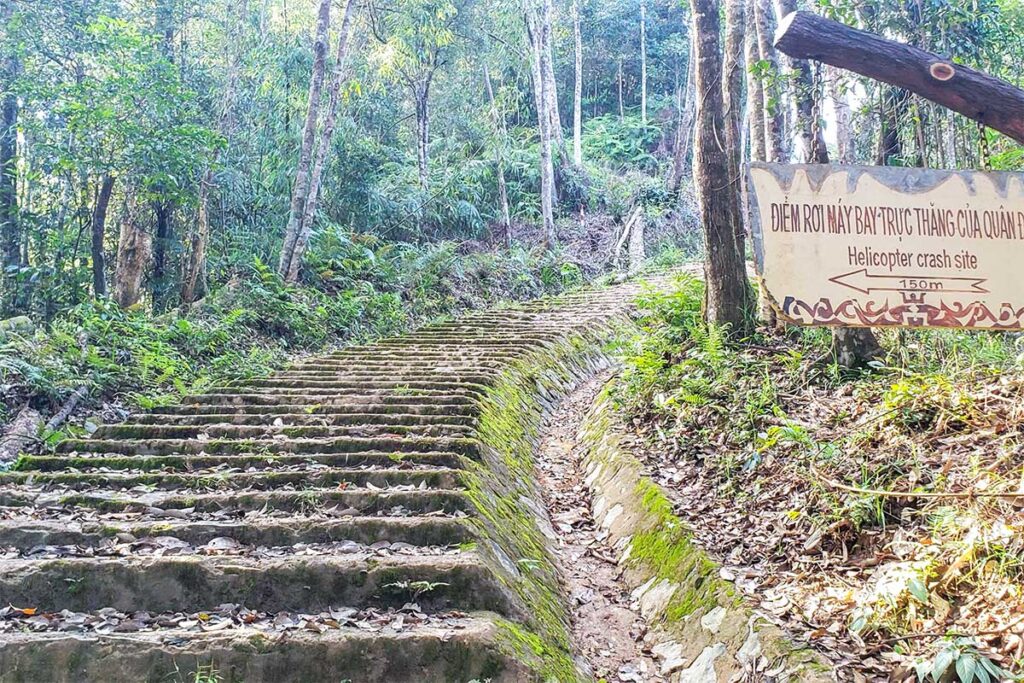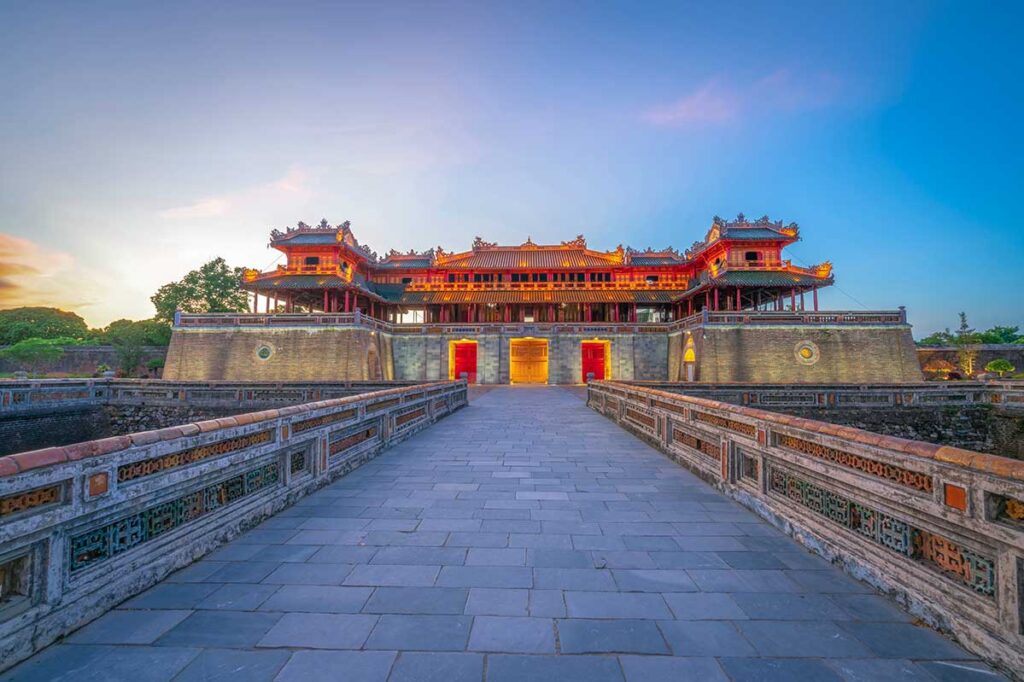What is Hamburger Hill?
Hamburger Hill is the nickname given by American soldiers to A Bia Mountain, a forested peak located in Thua Thien Hue Province, just outside the town of A Luoi and close to the Laos border. The name “Hamburger” was a grim reference to the way soldiers felt they were being chewed up by the intensity of the fighting.
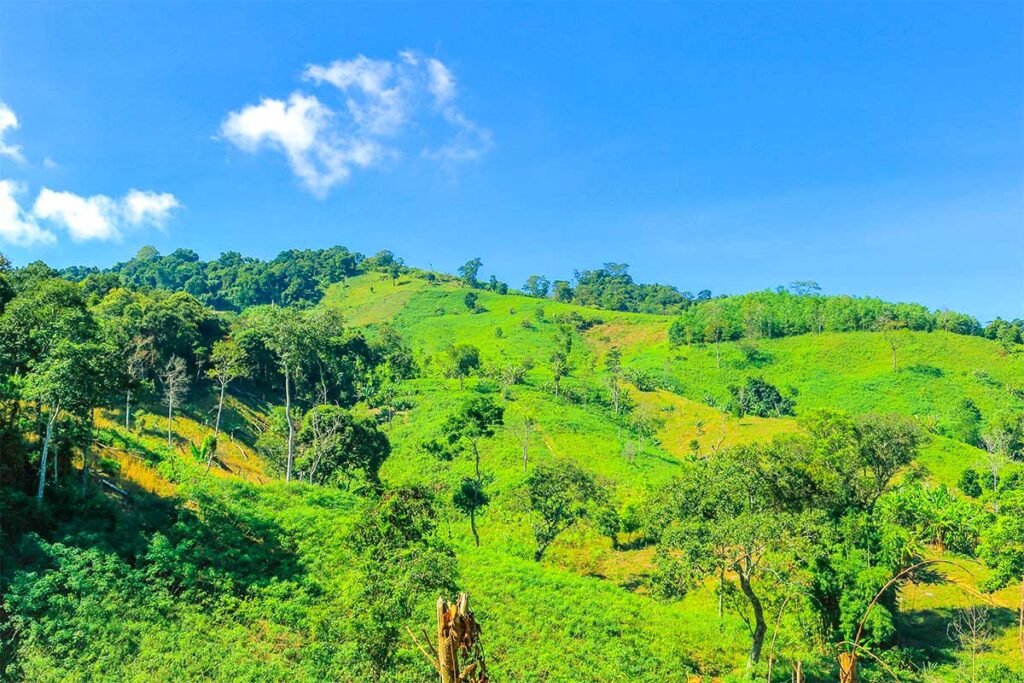
The battle took place in May 1969, and became one of the most heavily criticized operations of the war—both for its high casualties and because the hill was abandoned shortly after it was captured. Today, the mountain is overgrown and largely untouched, with no official infrastructure, but it remains a powerful symbol of the war’s cost. It also gained wider recognition through the 1987 war film Hamburger Hill, which helped make the site known to audiences around the world.
History of the battle
Background and strategic context
In May 1969, Hamburger Hill became the focus of Operation Apache Snow, a U.S. military campaign aimed at disrupting North Vietnamese Army (NVA) activity in the A Shau Valley, a key infiltration corridor near the Laos border.
The U.S. military saw A Bia Mountain as a strategic high ground that provided control over the surrounding valley and access points used by the NVA along the Ho Chi Minh Trail. Taking the hill was part of a broader effort to weaken enemy supply routes and disrupt their operations in this remote, mountainous area.
The battle
What followed was one of the fiercest and most controversial battles of the Vietnam War. Over the course of 10 days, U.S. forces—mainly the 101st Airborne Division—launched repeated uphill assaults through dense jungle in the face of well-fortified NVA resistance. Rain, thick vegetation, and steep terrain made progress brutally slow and disorienting.
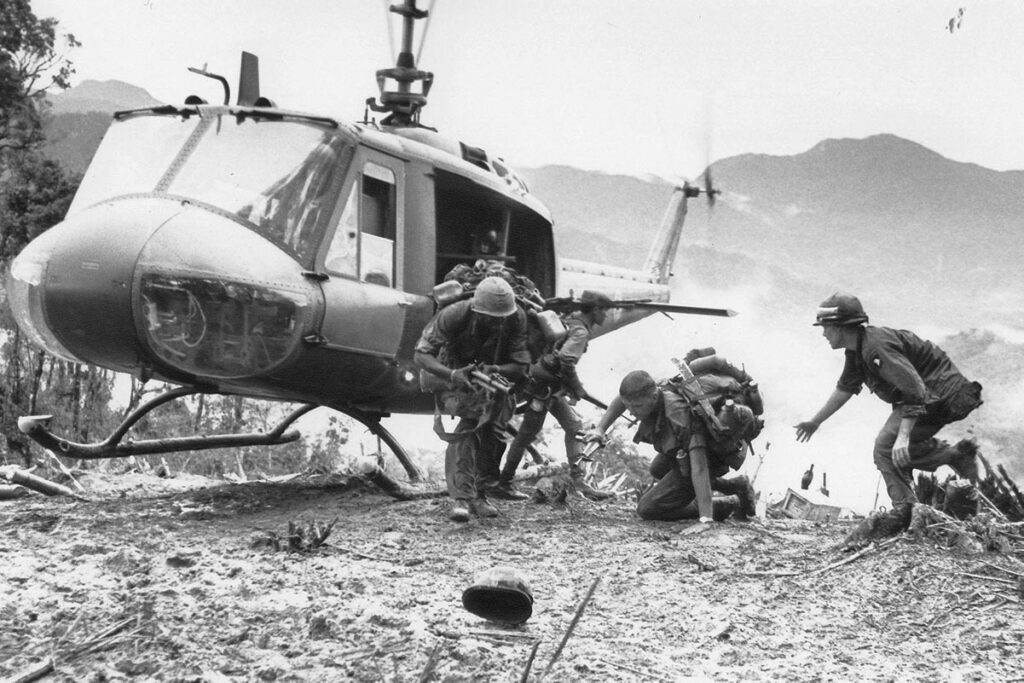
Despite heavy casualties on both sides, the U.S. eventually captured the hill on May 20, 1969. But just days later, it was abandoned, sparking widespread outrage in the U.S. media and among the public. Critics questioned the cost of capturing a hill that seemed to have little long-term strategic value, and it quickly became a symbol of the war’s grinding, attritional nature.
The controversy surrounding Hamburger Hill had a lasting impact—it helped shift public opinion further against the war and led to changes in how future military operations were conducted and communicated.
What you can see today
There is no formal parking lot, but you can park your motorbike near the trailhead, often alongside those of local farmers. The road to the site is in poor condition, and scooters may struggle with the terrain, especially after rain. Many travelers with off-road motorbikes ride closer to the base, while others leave their vehicles earlier and walk in—typically 3 to 7 km depending on road conditions. From here, you’ll begin your journey through the hill’s history and natural beauty.
1. The small museum
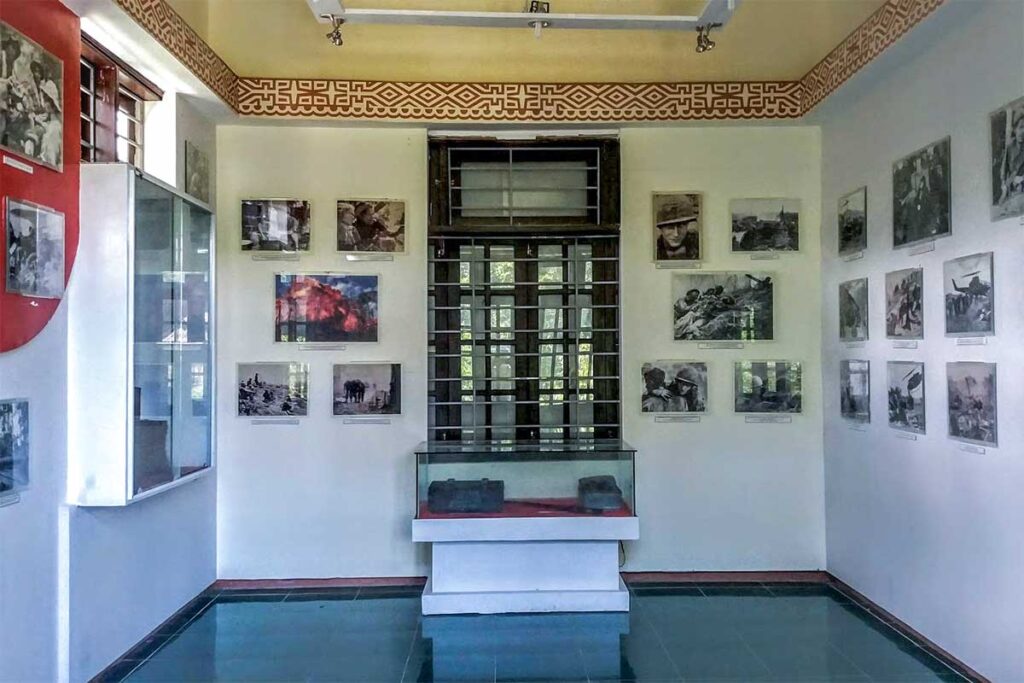
At the base of the hill, you’ll find a simple building displaying photos and artifacts related to the battle. While modest, the museum provides valuable insight into the history of Hamburger Hill, offering a basic overview of the battle before you start the hike.
2. The scenery of the hill and jungle
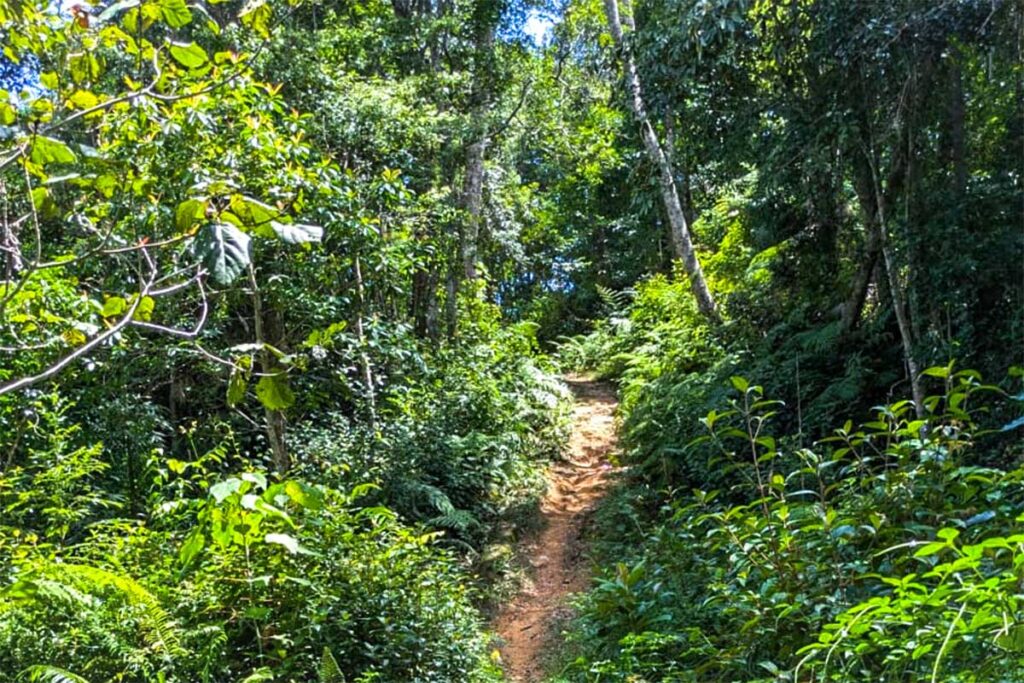
The hill itself rises to roughly 900 meters above sea level, surrounded by dense jungle. The peak is largely undeveloped, offering breathtaking views of the surrounding landscape. As you make your way up the trail, the rich, green canopy of the forest adds to the sense of isolation and quiet, with only the sounds of nature filling the air.
3. The trail and stairs
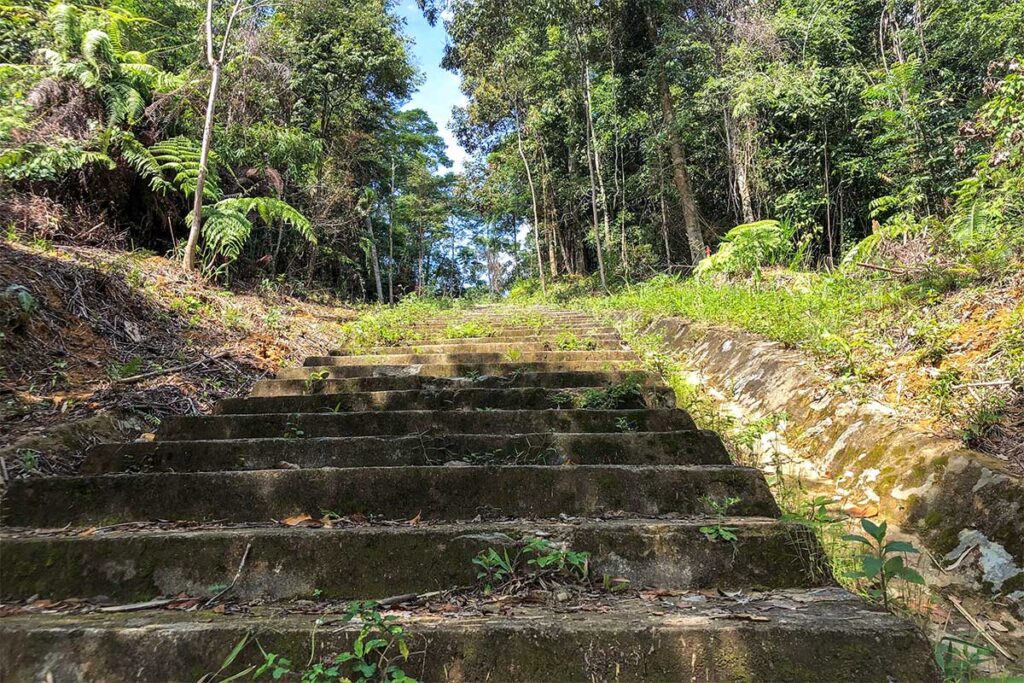
The trail to the summit takes around 45–60 minutes, with about 200 meters of elevation gain. The path is often narrow and winding, surrounded by thick jungle. You’ll encounter stone steps that can be slippery, particularly in wet conditions. Some sections of the trail follow the ridge used by U.S. troops in 1969, adding historical significance to the walk. While the trail is not overly long, it can be physically demanding, so it’s important to come prepared with good hiking shoes, water, and sun protection.
4. The historical markers along the Hill
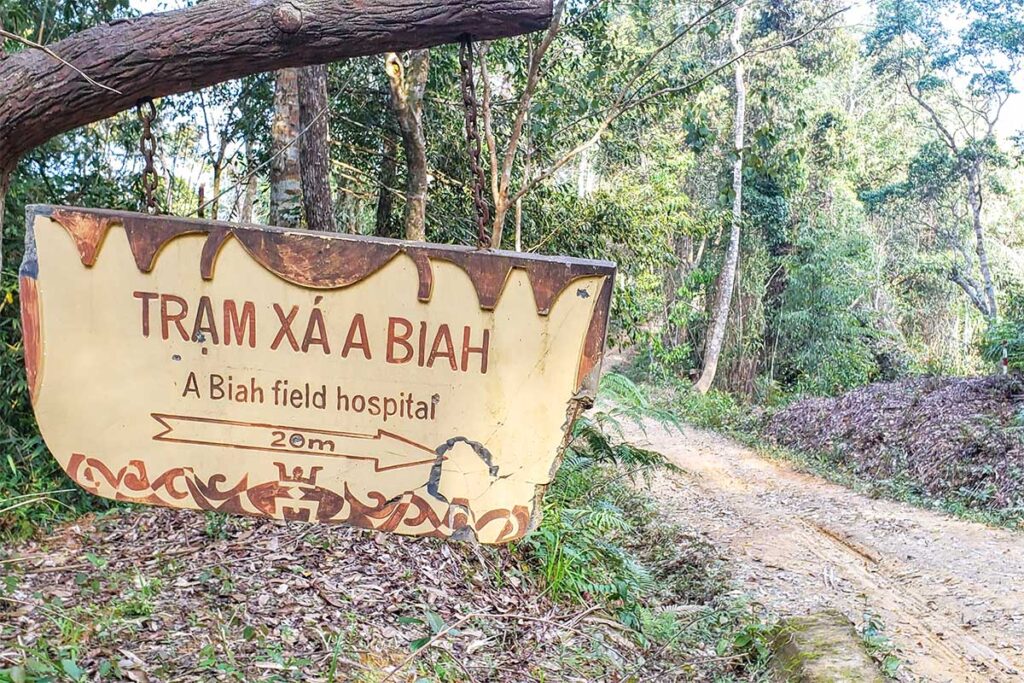
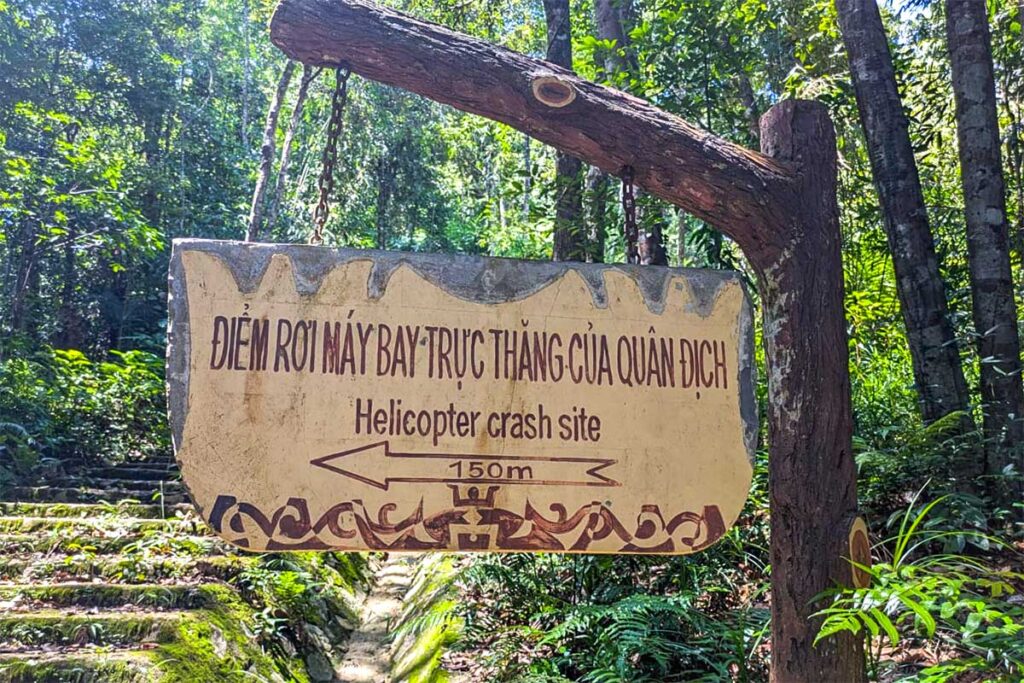
As you ascend, you’ll encounter several historical markers indicating key sites from the battle. These include signs for the Helicopter Crash Site, the A Bia Field Hospital, and Airport Monuments Ma Mung. These markers add context to the hike, providing visitors with a deeper understanding of the historical significance of the area and the battle that took place here.
5. The memorial plaque
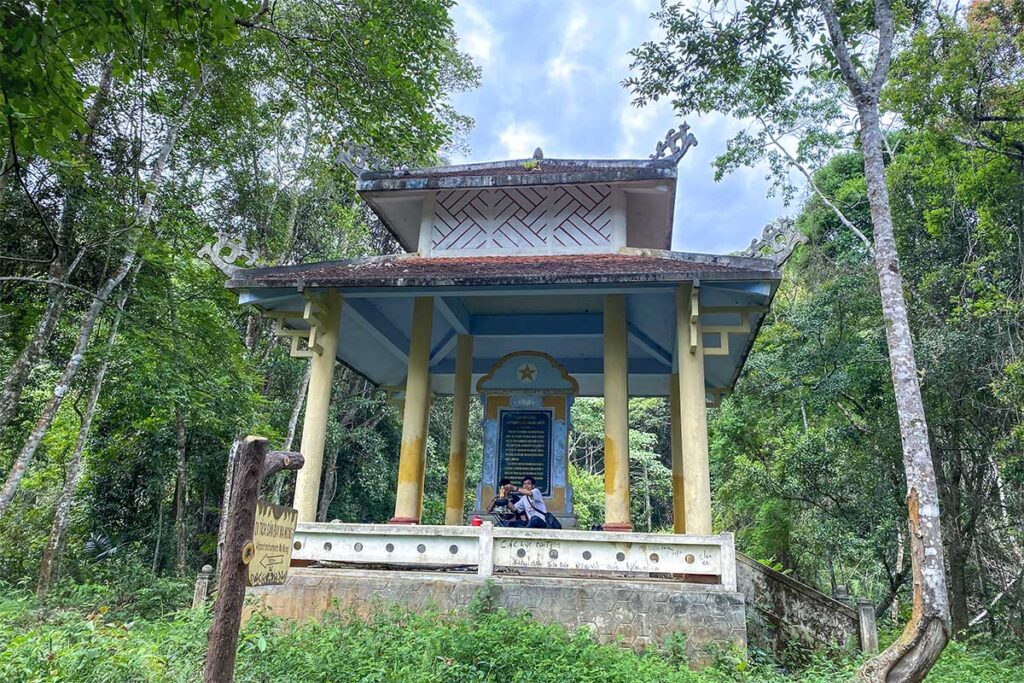
Higher up on the hill, you’ll find a simple memorial housed in a small pavilion. The plaque offers basic information about the battle, and while the memorial itself is not grand, it serves as a quiet place for reflection. It’s a modest but significant stop on your way to the summit, adding a personal touch to the historical journey.
How to visit Hamburger Hill
Location
Hamburger Hill—officially A Bia Mountain—is located in A Luoi District, about 65 to 70 kilometers west of Hue, near the Laos border. It sits in the heart of the A Shau Valley, a region that saw intense fighting during the Vietnam War.
While the area is reachable by road, it’s remote, mountainous, and not well marked. The final approach is rough, especially during the rainy season, and there are not many signs or visitor facilities.
Riding the Ho Chi Minh Trail
For most travelers, Hamburger Hill is best visited as a small detour from a longer motorbike journey, especially for those riding all or part of the Ho Chi Minh Trail. If you’re heading north from Hue, the route through A Luoi allows you to pass the hill before continuing on to Quang Tri Province, where you can explore the DMZ and other Vietnam War sites.
This is not a recommended destination for a casual visit or day-trip—it’s for those already exploring the region by motorbike, ideally with off-road capability, and some experience with remote travel conditions.
Trekking or adventure tours
Hamburger Hill can sometimes be included in multi-day Easy Rider tours, veteran-focused itineraries, or jungle trekking adventures. These trips typically start in Hue and pass through the A Shau Valley, before continuing along the western section of the Ho Chi Minh Trail.
If you plan to visit, come properly prepared: trekking shoes, plenty of water, and sun protection are essential. The terrain can be steep, muddy, and isolated, so it’s best tackled with a local guide or someone familiar with the area.
